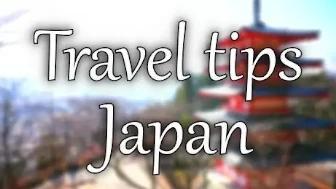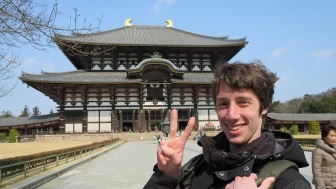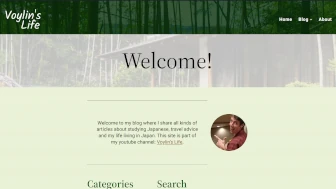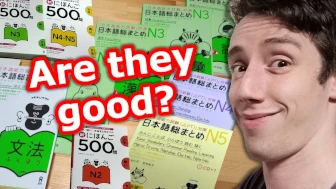Transport
The best way to move yourself around in Japan is with the trains and an Icoca pass, the pass changes names in certain places. What this pass is is a card which you load money on and can then be used to pay in almost all trains, busses and even certain shops allow you to pay with it. There’s only one problem, lose the card and you lose your money. There is also no pin code on it so gone is gone.
To see which trains/busses/… you have to take I would recommend using Google Maps and the many free wifi-hotspots which you can find at almost all tourist places. Don’t bother buying a sim card or pocket wifi in Japan as they are expensive and kind of useless and distracting.
If you decide to rent a car, be sure to get your international driver’s license. You’ll be pleased to hear that the roads are almost always very clean and well maintained. Busses are a great alternative for where trains don’t reach, but they are kind of meh and in some places the busses work differently, in general, you get in on the back, use your icoca or when the busses are old (they mostly are) you have to take a ticket when getting on.
Taking a ferry is another possibility, with even some cruises going around Japan. If you want to travel in peace and see a different place every other day, I would highly recommend the cruises for people staying here for a short time or a long time. For people staying here an average of 2 weeks would be better of just traveling over land, in my honest opinion. That’s because you are here long enough to get over your jetlag and really make the most out of it by just taking the trains to go everywhere.
Medical Infrastructure
If you have special needs or something happens during your trip here, you’ll be happy to know that the infrastructure is very decent and enough different options to choose from. If you don’t have a travel insurance which covers medical costs, you’ll be rather broken, by a matter of speech, to hear that the prices can be as high as the buildings here.
Coming from Belgium, I’m glad that there are enough possibilities but if you are planning on doing any kind of sport here, like snowboarding or skiing, please get an insurance as your piggy bank will be grateful.
Photo’s
Now I’ve traveled a lot in my young life already and Japan is one of the first countries where I see so many signs which say, “Please don’t take pictures or movies!” Now I understand this on one hand but they can be very strict and serious about it, so just respect the signs. Also, just don’t go taking random pictures of Japanese people in public. Everybody deserves their privacy and Japan is not an open zoo.
For photographers or press, you will need a press card to stay out of trouble: Foreign Press Center Japan.
Traditions
I will just name a few as they have too many to count:
- Take your shoes off at the “Genkan” area before entering a house/hostel/restaurant;
- Don’t eat/drink and walk at the same time;
- Don’t litter;
- Don’t talk loudly on the train;
- Be respectful for others, especially elder people;
- Don’t just smoke in any streets, many streets are a no smoke zone!;
- Follow the guidelines in Onsen and Sento.
If you follow these big guidelines, you’ll be alright. You won’t get a fine if you don’t follow them, except for smoking and littering. But I find that most of these things are quite common sense, sadly common sense is something not everybody has nowadays.
Visa
Every country has different requirements, however, Japan let many countries enter without needing to request a visa beforehand. You will get a 3-month tourist visa upon arrival if that’s the case. The only thing you need to have is a return ticket which says you are leaving within that period of time before your 3-month tourist visa expires.
Look up the embassy of your country to find the rules for you to get a visa for entering Japan.
Money
Everybody needs money to pay for food, hotel, transport,… In Japan, they pay for things with Japanese Yen. There is however a slight inconvenience and that is: Most shops only accept cash money. Now don’t go to your bank and exchange money beforehand. Just wait until you land in Japan and go to your nearest atm, I recommend any convenience store as their rates are good and costs are low, and get yourself a healthy amount of pure cash to pay with.
If you are from a country outside of Asia, or even some countries within Asia, you may have to go to your bank and say that you will be using your card abroad. Else you may run into the surprise of getting your credit card blocked abroad. Believe me, that’s not a fun feeling.
Criminality
I won’t say that there is no criminality in Japan, but it is so low that you will probably never get in direct contact with it. In all my time traveling and living here, I’ve never seen much of it on television or in newspapers either. At least not as much as I did back in Europe.
There are however a couple of areas where you better don’t go, or at least pay very good attention.
- Roppongi
- Kabuki-cho/Shinjuku in Tokyo
- Namba/Minami in Osaka
Corona
As of writing this, the country is at a level 3 state according to the CDC, Centers for Disease Control & Prevention. So they don’t recommend traveling to Japan anytime soon. Whilst living here and seeing the damage the virus is doing in Europa, I also would like to recommend people not to travel too much to help to prevent the virus from further spreading and killing people.
The Olympics are also postponed, they didn’t make that decision easier. So to everybody, wait it out at home, a great way to save money so you have a bigger budget and fewer risks for your next trip.
How is Fukushima?
To check how the current status is, I would recommend checking out these 2 sites, but since the making of this video and now, I can say that a big part has been made safe and there’s not that big of a threat to normal tourists.
Sites with information:
- https://www.tokyo-icc.jp/information/pdf/qa_en.pdf
- http://www.bousai.metro.tokyo.jp/index.html#anchor5
Is Japan safe?
Well, it really depends which season you come in if you can’t handle the heat well like me, it’s better you refrain from coming during the summer period, especially July and August. September is known to be the typhoon season here, so unless you want to be stuck in Japan because a typhoon blew a boat against the bridge to the airport, better don’t come during this month as well.
I’m mainly talking about the weather, and that has a big reason. In all my time visiting and living in Japan, there hasn’t been a single moment in which I felt unsafe. Even during the typhoon, which I’ve talked of, there was a certain sense of safety as they are all quite well prepared for national disasters.
The only thing that keeps sticking in the back of my mind is, that in the area where I live (Osaka), it’s said that they are expecting a big earthquake anytime in the next coming months/years.
For the latest news of Japan:
Foreign Press Center Japan, contains news about all the bad and good things happening in Japan.










